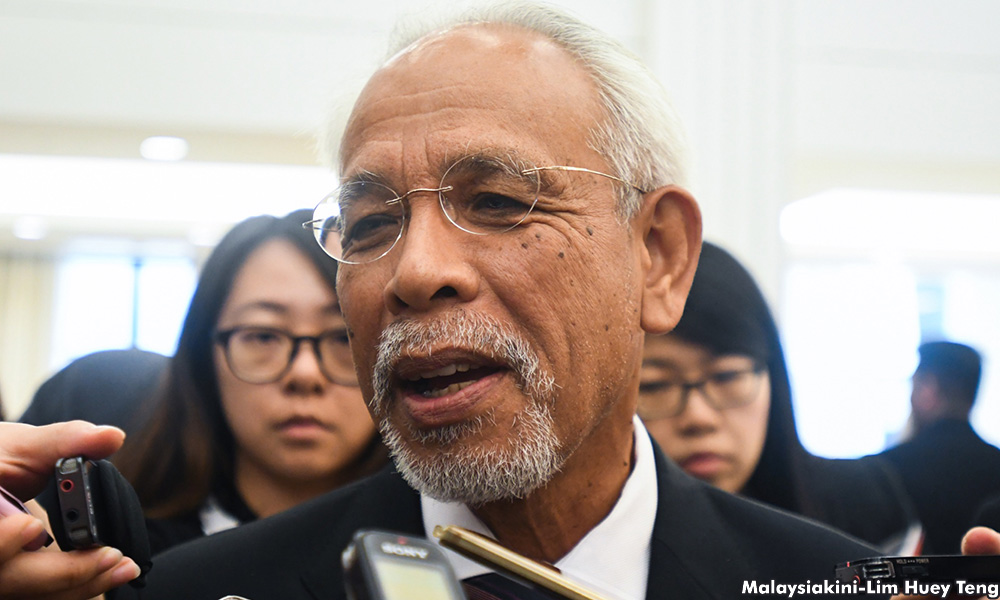COMMENT | As the national debate intensifies over the comparative merits and demerits of the Pakatan Harapan government vis-à-vis its predecessor, a suburban community in Johor Bahru will get to know the difference soon in a way that could not be more graphic.
Something like 1,500 residents of Kim Teng Park, a middle-class residential hub located a stone's throw away from the JB Customs and Quarantine Complex, have gotten word that their housing estate is once again in the cross-hairs of a developer.
This is the second time in four years that occupants of 279 single-storey houses and a slew of shoplots, situated on 28 acres of prime land, are faced with the threat of their property being taken over for high-end development.
The land on which their houses sit is now a more luscious slice of real estate because of its proximity to the planned Johor Bahru-Singapore Rapid Transit Link, a project that will cut travel time between the two cities to commercially viable spans.
In 2015, the same developer eyed the property for high-rise development. The Rapid Transit Link was then more suggestion than certainty.
Alarmed residents, a good proportion of whom are retirees and at the stage of life where the area's proximity to Johor Bahru's private and public hospitals counted for much, appealed to their MP Shahrir Samad.
Besides their fear of having to relocate to some distant place where they would be far from medical support, the residents were also worried about the possibility of paltry compensation from the developer.

In 2015, Shahrir, a six-term BN lawmaker, was surprised that he was not notified in advance of the developer's plans, as MPs ought to be.
He assured the residents he would see what he could do to help.
He spoke to Menter Besar Khaled Nordin. It must have helped that Khaled was once a protege of the veteran parliamentarian.
The plans were duly shelved and Kim Teng Park, erected in 1959 to accommodate British military personnel employed at the Woodlands naval base across the Causeway in Singapore, survived into its sixth decade of existence.
Early this year, however, Kim Teng's residents got wind that the thwarted developer, now more beady-eyed because of the completion of four high-rise developments on the periphery of their estate, has resurrected his interest in acquiring their property.
They noted the same lack of prior consultation that was the case in 2015, a worrying sign they are going to face an arbitrary demand to vacate with incommensurate compensation.
The residents' association put into gear the same panoply of measures to stay the execution of the developer's plans, like letters to the municipal authority and the menteri besar, appeals to state assemblyperson and MP for intervention, and notices to the media for attention to their looming plight.

Yesterday, the area's newbie MP Akmal Nasir of PKR, who toppled Shahrir in the May 9 general election last year, was briefed by the residents' association on the issue.
Its chairperson Danial Lokman Hakim, whose police officer father purchased a house in the area in 1965, the one in which his son now lives, told Malaysiakini: “Just as was the case with Shahrir in 2015, our MP said he was not apprised in advance of the development plans for this park. This stealth is what worries us. Why should such a big plan be couched in secrecy?”
Akmal, Stulang assemblyperson Andrew Chen of DAP under which Kim Teng Park falls, and Johor PKR chief Hassan Karim, who is MP Pasir Gudang, have all promised to raise the matter with Osman Sapian of Bersatu, the menteri besar of the Harapan-ruled state.
Osman has stated that the Johor Bahru-Singapore Rapid Link would require more land than initially envisaged. This has implications for the area on which Kim Teng Park sits.
A figure of about RM300 million has been bandied about as compensation for the residents to vacate.
This works out to something like RM250 per sq ft, a pittance compared to what the surrounding area fetches, said to be five to six times more.
The question inevitably arises: do the residents' elected representatives wield the same clout as Shahrir did, and do they enjoy the same symbiosis with Osman that Shahrir had with Osman's predecessor Khaled?
The answers are germane to evaluating the comparative merits of the BN and Harapan administrations, now the subject of national discussion and debate.
TERENCE NETTO has been a journalist for more than four decades. A sobering discovery has been that those who protest the loudest tend to replicate the faults they revile in others.
The views expressed here are those of the author/contributor and do not necessarily represent the views of Malaysiakini.

